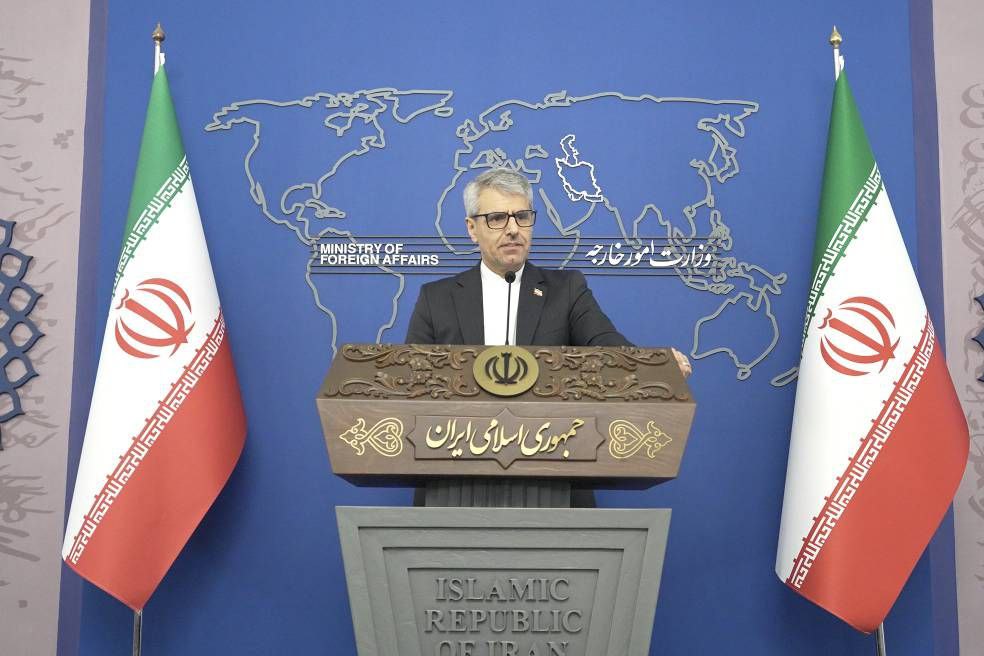BAKU, Azerbaijan, October 13. Iran's relations with China and Russia aren't affected by various processes, spokesman for the Iranian Foreign Ministry Esmail Baghaei said at a press conference in Tehran today, Trend reports.
According to him, Iran is keeping the ball rolling with its consultations with China and Russia on a regular basis.
Speaking about the opinions put forward regarding Iran's adoption of the CFT within the FATF at the insistence of China and Russia, Baghaei said that the practical step of the two countries in question can be observed in opposing the activation of the 'snapback' mechanism at the UN Security Council meeting.
He explained that if Russia and China didn't believe in relations with Iran, they wouldn't have put their cards on the table regarding their stance on Iran.
Moreover, according to the official, the fact that Russia and China demonstrated their positions openly and with legal facts reflected the legal aspects of continuing relations with Iran.
"Iran makes decisions based on its own interests. The study and ratification of conventions such as the CFT is one of the important international documents on Iran's agenda. The ratification of such conventions removes obstacles to facilitating banking and trade relations with various countries," he pointed out.
To note, Iran’s Guardian Council has conditionally approved the country’s accession to the Convention on Combating the Financing of Terrorism (CFT) on October 1, 2025
On May 15, 2025, the Iranian Advisory Council approved the FATF Convention against Transnational Organized Crime (Palermo). The Convention against the Financing of Terrorism (FT) is currently under review.
The Financial Action Task Force (FATF) of the Organization for Economic Cooperation and Development is an intergovernmental body that regulates the rules for combating money laundering and terrorist financing. At the last meeting of this organization, Iran was warned that if the country's program of steps is not improved, Iran may be added to the list of non-cooperative countries. Iran has complied with 37 out of 41 FATF steps.
The remaining four steps or conventions fall under the scope of the legislation. "Amendments to the Law on Combating Money Laundering," "Amendments to the Law on Combating the Financing of Terrorism," "Accession to the International Convention on Combating Transnational Organized Crime (Palermo)," and "Accession to the International Convention on Combating the Financing of Terrorism (CFT)" have been drafted by the Iranian government and sent to the parliament. Although the four conventions were approved by the parliament and sent to the Advisory Council, the CFT conventions and the Palermo Convention have not yet been approved by the mentioned council.
The G7 group founded the FATF in 1989 to address money laundering. The organization comprises 37 members, with its administration situated in Paris.
The FATF designated Iran as a high-risk jurisdiction in 2007 and enacted formal sanctions on Tehran in 2009. Consequently, nations needed to exercise prudence in financial and banking transactions with Iran. Since 2016, diplomatic initiatives have postponed the implementation of retaliatory actions against Iran.
The Financial Action Task Force (FATF) designated Iran as a non-cooperative country (blacklist) on February 21, 2020.
Stay up-to-date with more news on Trend News Agency's WhatsApp channel







